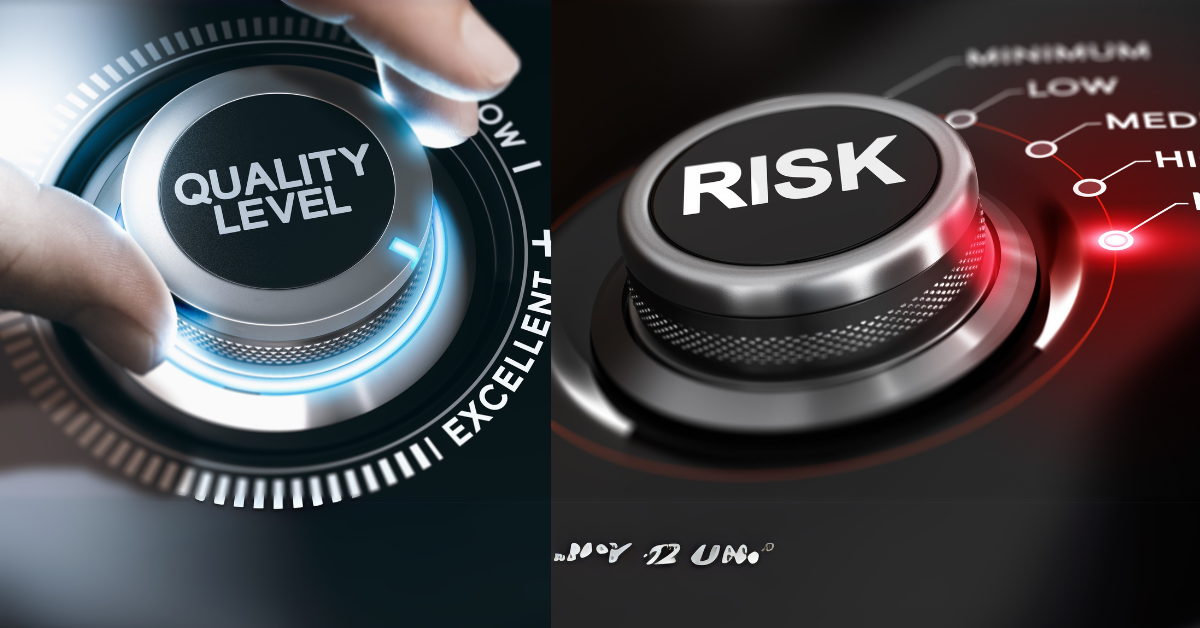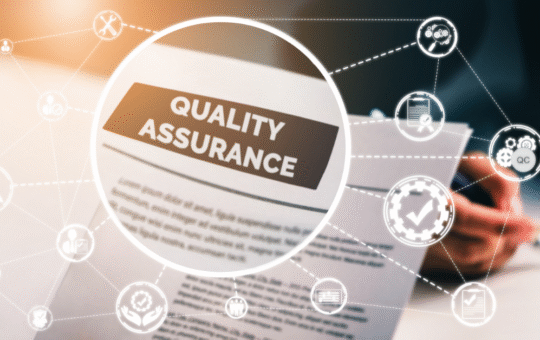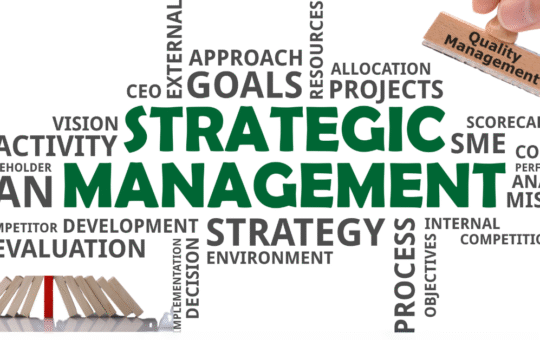
Level 4 Diploma in Advanced Quality Control and Risk Management
- Develop expertise in advanced quality control techniques.
- Master risk management strategies to safeguard business operations.
- Gain insights into integrating quality control and risk management frameworks.
- Enhance your ability to lead quality and risk management initiatives effectively.
- Understand advanced quality control methodologies and their application in diverse industries.
- Learn to design and implement robust quality assurance systems.
- Master risk assessment techniques, including qualitative and quantitative methods.
- Develop the ability to monitor and mitigate operational risks effectively.
- Gain expertise in ISO 9001 standards and their integration with risk management frameworks.
- Principles of Advanced Quality Control
- Advanced tools for quality measurement and control.
- Statistical techniques for ensuring consistent output.
- Designing Quality Assurance Systems
- Frameworks for building effective quality systems.
- Aligning quality objectives with organizational goals.
- Introduction to Risk Management
- Fundamentals of risk identification and assessment.
- Differentiating between operational, financial, and strategic risks.
- Advanced Risk Mitigation Techniques
- Building proactive risk management plans.
- Utilizing Failure Mode and Effects Analysis (FMEA) and Risk Matrices.
- Integrating Quality and Risk Frameworks
- Implementing ISO 9001 with risk-based thinking.
- Synergies between quality assurance and enterprise risk management.
- Case Studies and Applications
- Real-world applications in manufacturing, healthcare, and service industries.
- Advance to Level 5 certifications in Quality Management or Risk Assessment.
- Pursue roles such as Quality Assurance Manager, Risk Management Consultant, or Operations Manager.
- Lead quality and risk initiatives in sectors like manufacturing, healthcare, IT, and finance.
- Advanced Content: Comprehensive coverage of quality control and risk management.
- Expert Guidance: Learn from experienced trainers with real-world expertise.
- Global Recognition: Certification that enhances your career opportunities worldwide.
- Practical Focus: Hands-on exercises and case studies for actionable learning.
Study Units
- Principles of Advanced Quality Control
- Advanced tools for quality measurement and control.
- Statistical techniques for ensuring consistent output.
- Designing Quality Assurance Systems
- Frameworks for building effective quality systems.
- Aligning quality objectives with organizational goals.
- Introduction to Risk Management
- Fundamentals of risk identification and assessment.
- Differentiating between operational, financial, and strategic risks.
- Advanced Risk Mitigation Techniques
- Building proactive risk management plans.
- Utilizing Failure Mode and Effects Analysis (FMEA) and Risk Matrices.
- Integrating Quality and Risk Frameworks
- Implementing ISO 9001 with risk-based thinking.
- Synergies between quality assurance and enterprise risk management.
- Case Studies and Applications
- Real-world applications in manufacturing, healthcare, and service industries.
By completing this course, learners will:
- Understand advanced quality control methodologies and their application in diverse industries.
- Learn to design and implement robust quality assurance systems.
- Master risk assessment techniques, including qualitative and quantitative methods.
- Develop the ability to monitor and mitigate operational risks effectively.
- Gain expertise in ISO 9001 standards and their integration with risk management frameworks.
The Level 4 Diploma in Advanced Quality Control and Risk Management is designed for experienced professionals who are looking to deepen their expertise in both quality control and risk management. This course is ideal for:
Quality Assurance Managers
Professionals responsible for overseeing quality assurance processes and who wish to expand their knowledge in advanced quality control techniques and frameworks.
Risk Management Specialists
Individuals focused on assessing and mitigating risks within complex operational environments, seeking to enhance their ability to integrate quality control with risk management.
Operations and Production Managers
Managers in industries such as manufacturing, healthcare, or IT, who are responsible for ensuring quality output and identifying operational risks to safeguard business operations.
Compliance and Regulatory Professionals
Individuals working in compliance roles who need to develop a deeper understanding of integrating quality management systems (such as ISO 9001) with risk-based thinking.
Consultants in Quality and Risk Management
Consultants who guide organizations in improving their quality systems and managing risks across a variety of sectors, looking to enhance their proficiency with advanced methodologies.
Senior Professionals in Manufacturing, Healthcare, and IT
Executives or senior managers who need to lead quality assurance and risk management initiatives and ensure the implementation of effective systems for business sustainability.
Our assessment process is designed to ensure every learner achieves the required level of knowledge, skills, and understanding outlined in each course unit.
Purpose of Assessment
Assessment helps measure how well a learner has met the learning outcomes. It ensures consistency, quality, and fairness across all learners.
What Learners Need to Do
Learners must provide clear evidence that shows they have met all the learning outcomes and assessment criteria for each unit. This evidence can take different forms depending on the course and type of learning.
Types of Acceptable Evidence
Assignments, reports, or projects
Worksheets or written tasks
Portfolios of practical work
Answers to oral or written questions
Test or exam papers
Understanding the Structure
Learning outcomes explain what learners should know, understand, or be able to do.
Assessment criteria set the standard learners must meet to achieve each learning outcome.
Assessment Guidelines
All assessment must be authentic, current, and relevant to the unit.
Evidence must match each assessment criterion clearly.
Plagiarism or copied work is not accepted.
All learners must complete assessments within the given timelines.
Where applicable, assessments may be reviewed or verified by internal or external quality assurers.
Full learning outcomes and assessment criteria for each qualification are available from page 8 of the course handbook.
Top Courses
No results found.
Related Courses
Let's Get in touch
Deleting Course Review
Course Access
This course is password protected. To access it please enter your password below:



